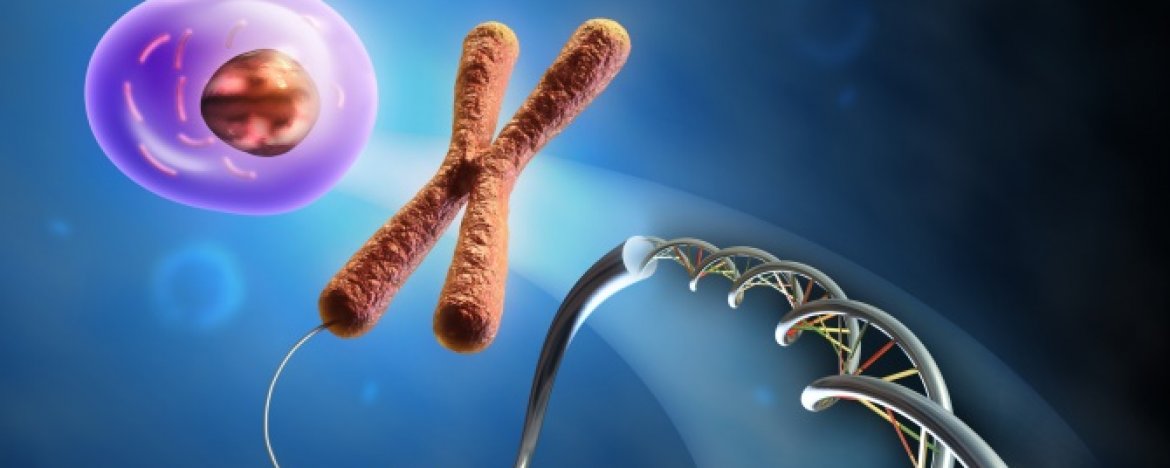Recently, there has been a lot of discussion in the media about DNA analysis. Publicly available DNA tests (such as the iGene DNA test) are regularly compared to traditional DNA testing by a clinical geneticist.
Not so strange, because in both cases statements are made based on your DNA. However, there are quite a few differences between a private DNA test and testing by a clinical geneticist. In this article we will discuss this in more detail.
What is the purpose of the test?
Hereditary testing by a clinical geneticist almost always has a specific medical indication. For example, an inherited form of cancer that runs in your family. The main goal is then to detect this specific genetic abnormality.
Publicly available DNA tests are expressly not intended for specific medical research, but are designed to provide you with information about your genetic predisposition in a broader sense. For example, an iGene DNA test provides information about your genetic predisposition for more than 10 different disorders. You will also receive a pharmacoprofile, for example, which shows your personal sensitivity to a large number of medications.
 What kind of information does the DNA test give you?
What kind of information does the DNA test give you?
Medical science has traditionally focused on diagnosis and cure. Research by a clinical geneticist is also basically 'curative' in nature. As we indicated above, the goal is usually to detect one specific genetic abnormality, with possible medical intervention in mind.
Most publicly available DNA tests focus on prevention (at least the more serious tests do). The iGene DNA test is one of them. In addition to information about your predisposition for various diseases, you will also receive lifestyle recommendations. The ranking of these recommendations is partly based on your DNA profile, to make them even more relevant and useful.
What genes are being looked at?
In view of the purpose of the test, a clinical geneticist will test one or a few genes very carefully. This often involves so-called high-risk genes.
An example of this is BRCA1 and BRCA2; two genes that are also known as 'breast cancer genes'. Mutations on these genes are relatively rare, but that is different if cancer occurs in your family at a remarkably young age; the risk of such a mutation is much higher then. In such cases, it is wise to see if you qualify for a genetic test by a clinical geneticist.
However, low-risk genes are usually not considered in hospital research. But mutations in these genes occur more frequently and the sum of these mutations can lead to a (significantly) increased or decreased risk of certain diseases. An iGene DNA test does screen for many of these types of mutations.
 Accessibility to the general public
Accessibility to the general public
The name says it all: publicly accessible DNA testing is available to everyone. This is in contrast to genetic testing by a clinical geneticist. Only with a referral from the doctor will you be eligible for such testing. And this referral will only be given if you can demonstrate that there is a medical reason for it.
In discussions about DNA testing it is regularly suggested that the subject matter is too complicated for the ordinary citizen. And that the decision to perform DNA testing should therefore be left exclusively to medical professionals. At iGene we think fundamentally differently.
We believe that everyone has the right to his or her own DNA data, and that most people are perfectly capable of deciding for themselves what is good for them or not. The complexity of the matter is not, in our view, a valid argument for denying individual citizens access to information about their own DNA.
Costs and reimbursement
The costs for a so-called 'single consultation' with a clinical geneticist (a discussion without follow-up testing) are approximately 450 Euros. Complex counselling', in which extensive testing is carried out, will cost approximately 1,500 euros. These costs are covered by the basic health insurance. Of course, you will have to pay the part that falls under your own risk (in 2019 at least 385 euros) yourself. Provided, of course, that you have a referral from your GP or specialist.
An iGene DNA test, which is not covered by your health insurance, can be done through Bloodtesting.nl and costs 265 euros (now temporarily for 189 euros).
Why is our test, which also maps out a larger part of your DNA, so much cheaper than a hospital test? First of all, individual counselling by a clinical geneticist is obviously more expensive than offering a test online. But more importantly, in recent years enormous innovations have taken place in the bioinformatics sector. We make grateful use of these innovations to be able to offer our test to a wide audience at the best possible price.
Personal assistance
In all cases, you will receive personal guidance when you take a test from a clinical geneticist. This is not the case for most publicly available DNA tests, which you usually order online.
In the near future iGene will offer the possibility to discuss your results during a personal consultation with an expert. We will do this as an additional service on top of the DNA test you ordered online.
Not a replacement, but a supplement
Finally, we would like to emphasize that we view publicly available DNA testing as a supplement to traditional medical hereditary testing, not as a replacement for it.
Is there a medical indication for hereditary testing? For example, because a certain form of cancer runs in your family at a young age? Then your GP is the first person you should talk to about whether you qualify for a genetic test by a clinical geneticist.
How Bloodvaluesest.com can help
DNA testing is crucial to understanding how your health works. This gives you an insight into your unique DNA and your hereditary load, and you can then work in a targeted manner to address or resolve any problems, whether preventative or otherwise.
Would you like a general picture of your personal predisposition for several disorders? For example, to benefit from this information in terms of your lifestyle? Then consider ordering a public DNA test yourself. More about what DNA means for your diet and weight can be read in our blog: Is your Personal DNA Diet low carb or low fat?
Via Bloodtesting.nl you can order a selection of the most reliable and informative DNA tests. Under the brand name  DNA Expert, various DNA tests are available, from Nutrition, Weight, Performance to medication sensitivity and DNA Expert Total. Check here for all the DNA tests that Bloodtesting.nl can currently offer.
DNA Expert, various DNA tests are available, from Nutrition, Weight, Performance to medication sensitivity and DNA Expert Total. Check here for all the DNA tests that Bloodtesting.nl can currently offer.
You can read more about what DNA means for your diet and weight in our blog: Is Your Personal DNA Diet Carbohydrate or Low Fat?
With the iGene Passport you can easily gain insight into your genetic predisposition for various disorders.
The basic version contains nice to know hereditary characteristics.
This test set also contains MTHFR and Pharmacogenetics analysis, about your sensitivity to certain drugs nav your DNA profile.
The most complete health version, you will receive, in addition to the above information also information about your personal genetic characteristics and how you can respond to this with nutrition and lifestyle.
Thanks to iGene for allowing us to post their article.


